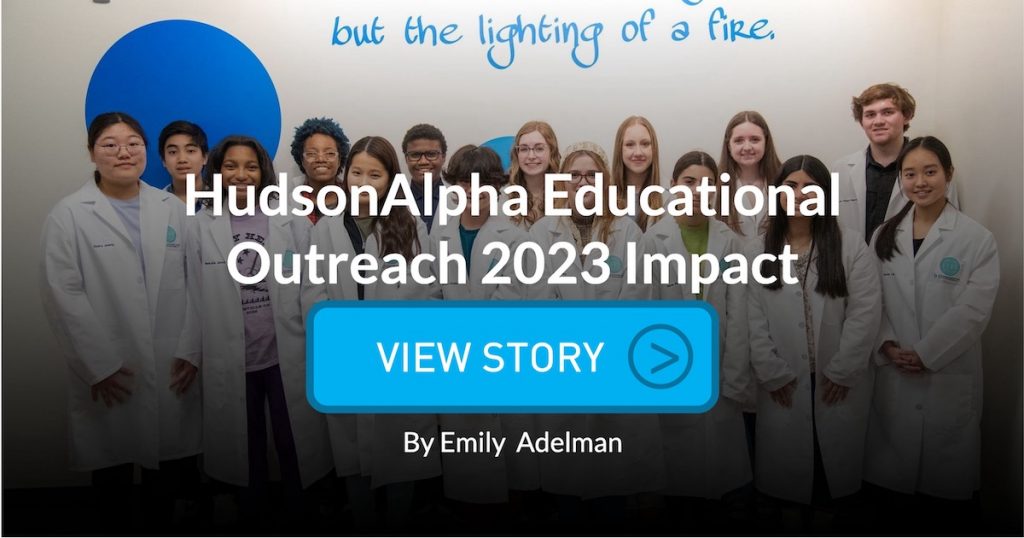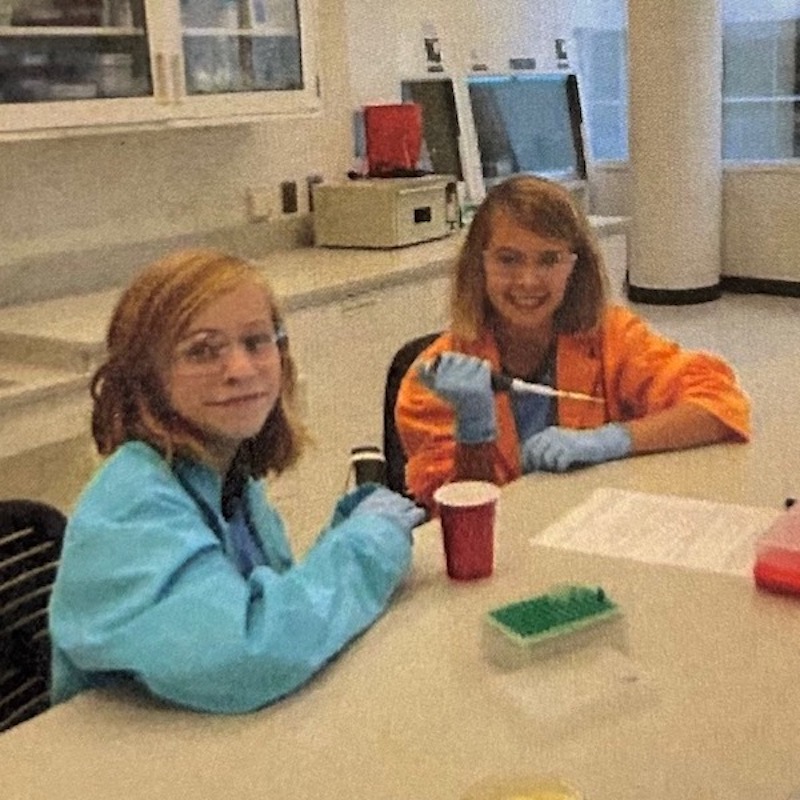Huntsville, Ala. — HudsonAlpha Institute for Biotechnology hosted a training session today for teachers and collaborators participating in the Bicentennial Barcoding project, which sets out to genetically catalog Alabama’s native plants.
Scot Duncan, a professor of Biology and Urban Environmental Studies at Birmingham-Southern College and author of “Southern Wonder: Alabama’s Surprising Biodiversity,” was the special guest speaker at the training session. Published in 2013, “Southern Wonder” combines the disciplines of ecology, evolution and geology into an explanation of why Alabama is home to more species than any other state east of the Mississippi River.
Duncan presented, “Alabama’s Biodiversity: What we have, why we have it, and why it matters.”
“As a biologist, my current work is focused on the dynamics of rare plant communities,” said Duncan, “so there is a need for initiatives such as the Bicentennial Barcoding project. “I was delighted to speak at HudsonAlpha today because what they’re doing here can play an important role in the preservation of the state’s biodiversity.”
The project is a collaboration between HudsonAlpha and the Alabama Bicentennial and part of the state’s upcoming bicentennial celebration. HudsonAlpha’s Educational Outreach team will provide training and resources that will give high school students and teachers the opportunity to determine DNA barcodes from the state’s population of native plants.
Today’s training session gave attendees the opportunity to act as plant detectives, and collect and analyze samples.
“We wanted to give collaborators a hands-on experience, and have them actually go through the process of collecting samples and data so they are prepared to lead students in their own investigations, said Jennifer Carden, leader of the project and a member of the HudsonAlpha Educational Outreach team. “And having Scot Duncan here to discuss how significant this project is to Alabama’s rich history will give our teachers additional insight to share with their students.”
The Bicentennial Barcoding project is made possible by institutional support from HudsonAlpha and the Lyndhurst Foundation.
About HudsonAlpha: HudsonAlpha Institute for Biotechnology is a nonprofit institute dedicated to innovating in the field of genomic technology and sciences across a spectrum of biological challenges. Opened in 2008, its mission is four-fold: sparking scientific discoveries that can impact human health and well-being; bringing genomic medicine into clinical care; fostering life sciences entrepreneurship and business growth; and encouraging the creation of a genomics-literate workforce and society. The HudsonAlpha biotechnology campus consists of 152 acres nestled within Cummings Research Park, the nation’s second largest research park. Designed to be a hothouse of biotech economic development, HudsonAlpha’s state-of-the-art facilities co-locate nonprofit scientific researchers with entrepreneurs and educators. The relationships formed on the HudsonAlpha campus encourage collaborations that produce advances in medicine and agriculture. Under the leadership of Dr. Richard M. Myers, a key collaborator on the Human Genome Project, HudsonAlpha has become a national and international leader in genetics and genomics research and biotech education, and includes more than 30 diverse biotech companies on campus. To learn more about HudsonAlpha, visit: http://hudsonalpha.org/.
Media Contact:
Margetta Thomas
mthomas@hudsonalpha.org
256-327-0425


